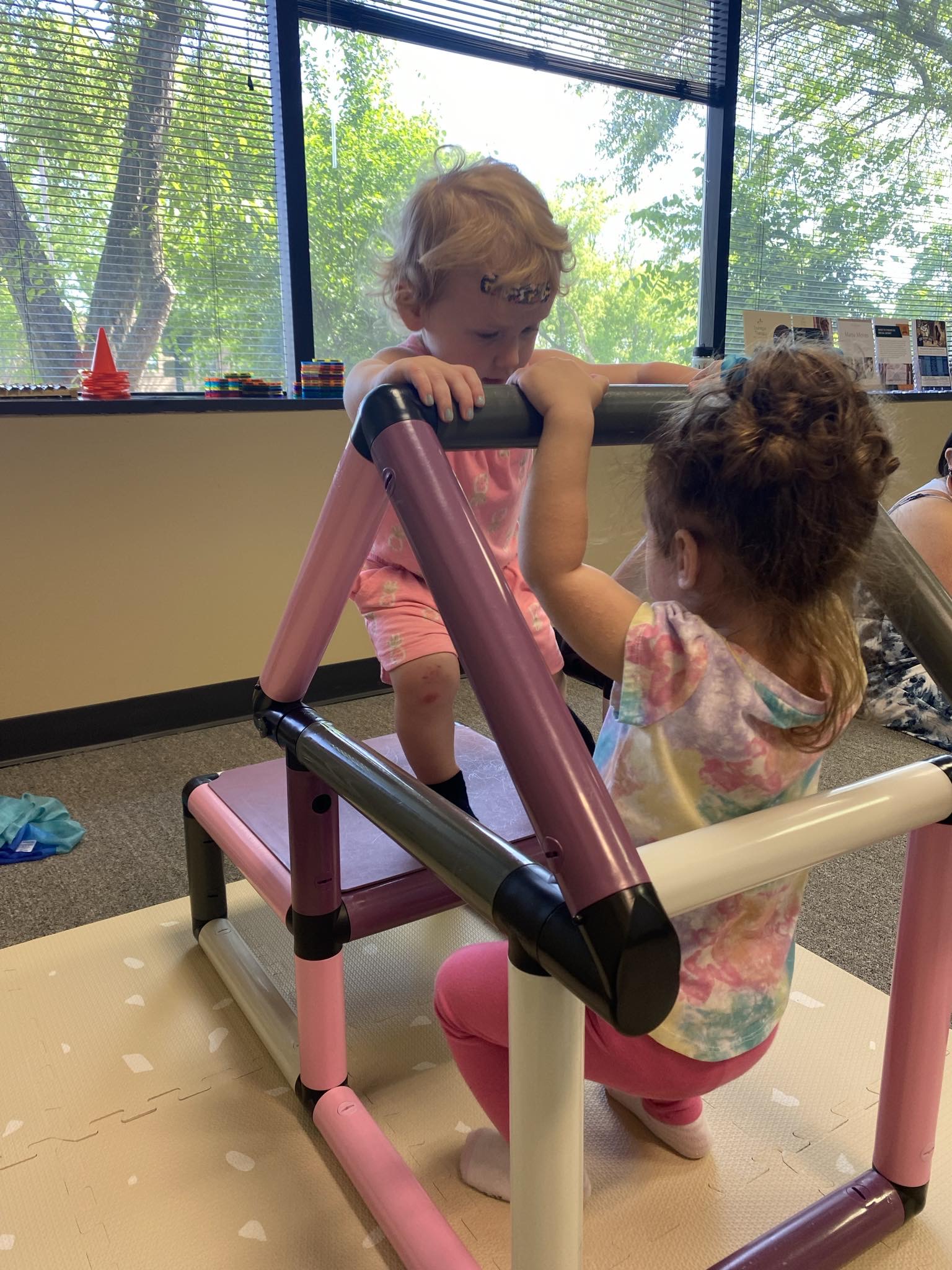Individual Counseling
Constance White MA, LPC specializes in individual counseling for people of all ages and backgrounds and is available for virtual sessions through TruHope’s secure online system.
Megan Alvarez MA, LCPC works with older adults and their families on site in clients’ homes, assisted living communities, and skilled nursing facilities. She is also available virtually through TruHope’s secure online system if preferred.
Linda Hadlock MSW, LCSW works primarily with clients through her social skills groups and financial social work coaching, but is available for individual counseling upon request.
Mama Moves
Connection Group for New Moms
Mama Moves is led by dance/movement therapist Megan Alvarez, LCPC. This group fills the need of many new parents for connection, fun, and a reason to get out of the house! Babies can be worn in a front carrier, facing in towards the parent. Assistance with proper and safe baby wearing will be offered at the start of each group to ensure infants are positioned well as parents move.


Financial Social Work
What is Financial Social Work?
The goal of financial social work is to help people connect with their money and change behaviors and emotions associated with finances (such as stress, anxiety, depression, and avoidance). Financial Social Workers help patients change their behavior in order to reach their financial goals. This includes stabilizing finances, reducting and paying off debt, reducing unnessary spending, starting savings while working toward building wealth, and meeting your personal financial goals.
The Six Most Significant Goals of Financial Social Work are to help patients:
- Make friends with their money.
- Feel more hopeful and optimistic personally and financially.
- Create healthier financial habits.
- Understand financial health is about more than dollars, cents, and budgets.
- Improve their relationship with their money and with themselves.
- Take control of their money and gain control of their lives.
Increasing Financial Knowledge
The money management information patients need (credit, debt, saving, investing etc.) to navigate every stage of the financial life cycle is woven into the Financial Social Work model in a manner that engages patients on a journey to financial and personal growth.
By integrating financial education, motivation, validation, support, and activities, patients discover their ability to better manage their money and their lives and begin to appreciate the opportunity to do so. It is a subtle but life changing process which teaches financial skills and tools but also converts negative thoughts feelings, and attitudes about money and self into more positive and hopeful ones.
Therapeutically Applied Role-Playing Games (TA-RPGs)
TA-RPGs involve a facilitator who guides 4-6 clients through a collaborative story-telling experience using Tabletop Role-Playing Games, paper character sheets, and dice to randomize outcomes. Participants will design a character and explore a fictional world created together with their peers. Clients will overcome challenges, fight monsters, search for treasure, solve puzzles, and go on epic adventures with their team! The facilitator will describe the setting in a fun and engaging way using dramatic voices, expressive body language, and occasionally using props (i.e. – a socerer’s hat) as visual cues to assist those who struggle with social cues to represent different characters the players may interact with during their adventures.
Sessions will be 2 hours long and include a brief check-in with participants, 90 minutes of gameplay, a brief check-out, and 20 minutes of processing/group feedback. Research has shown TA-RPGs to be an effective resource for individuals with Autism Spectrum Disorder (ASD), Attention Deficit Hyperactivity Disorder (ADHD), Depressive Disorders, Post-Traumatic Stress Disorder (PTSD), and Social Anxiety. Participants set goals in one of the five Core Capacities: Regulation, Collaboration, Planning, Perspective, & Pretend Play.
Contact Us for More Information